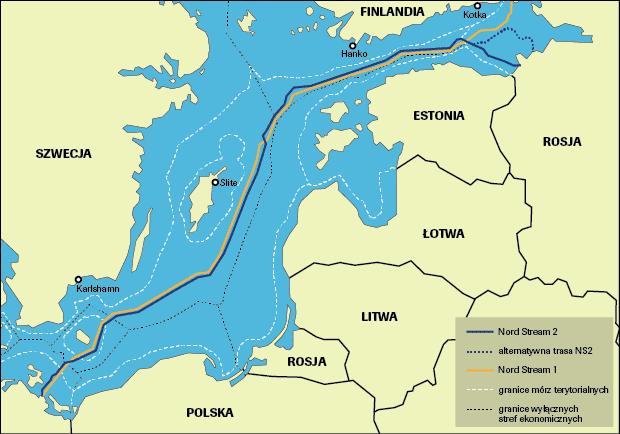Recent months have seen a revival of discussions about the Nord Stream 2 project in Sweden, Finland and Denmark, through whose exclusive economic zones and/or territorial sea the planned gas pipeline is to run, writes the Centre for Eastern Studies.
The Russian-Ukrainian war and the deteriorating security situation in the Baltic Sea region have resulted in a growing distance from Russian economic projects in these countries. Governments in Stockholm, Helsinki and Copenhagen have found themselves in the difficult position of having to take a stand against the project. On the one hand, they do not want to use domestic law and the law of the sea to block Nord Stream 2, which enjoys German support. On the other hand, they are under increasing pressure from the United States, Central and Eastern European countries and opposition in their own countries to stop it.
Sweden, Finland and Denmark are unlikely to slow down administrative procedures or block national approvals for the construction of the pipeline. However, these countries expect the European Commission to provide an assessment of the compatibility of the construction of Nord Stream 2 with the Third Energy Package. In addition, Stockholm and Copenhagen in particular call for a common EU policy position based on an assessment of the project's compatibility with the EU's energy and climate policy objectives and the EU's security policy interests.
The Polish government has opposed the investment for many months. Minister Piotr Naimski explained that from an economic and commercial point of view, NS2 strengthens Gazprom's dominant position in the region, which is not in Poland's interest.
Sejm Speaker Marek Kuchciński has repeatedly stressed that the draft undermines European values. At a meeting of EU parliament presidents in Bratislava, he argued that the project is an example of false solidarity, hitting Poland and other Baltic states.
infographics: gazpromexport.ru



